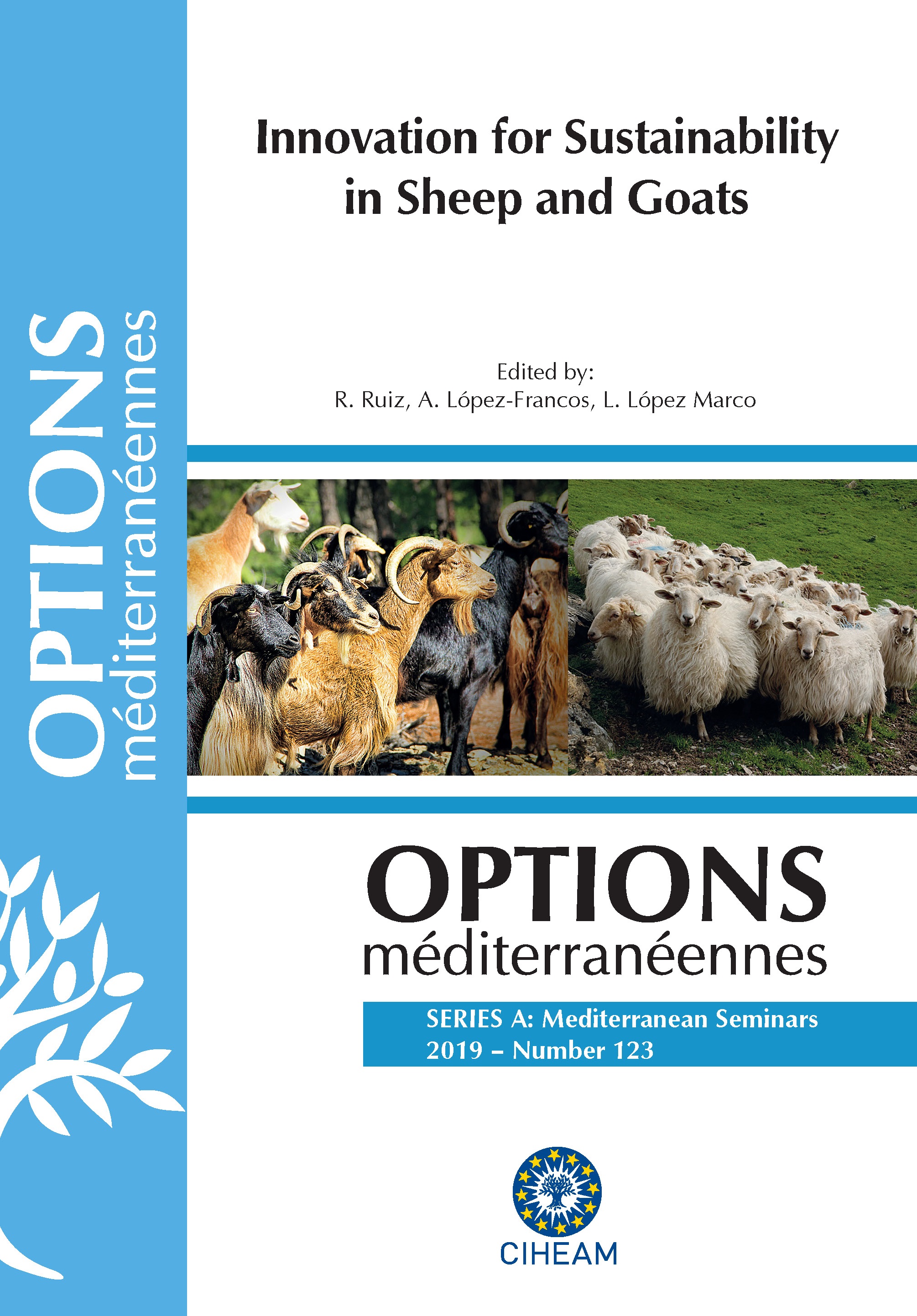| Article précédent | p. 129-132 | Article suivant |
Feed restriction in early life modifies the colonic epimural bacterial community and feed efficiency traits during the fattening period of merino lambs
Bacteria firmly attached to the gastrointestinal epithelium during early life show a significant impact on nutrient processing, immune-stimulation, health and feed efficiency traits during the entire life of lambs. Thus, the aim of the present study was to describe the changes in the colonic epimural bacterial community of fattening lambs promoted by different levels of nutrition during the suckling phase trying to shed some light on the underlying mechanisms behind different feed efficiency traits. Twenty four merino lambs (average LBW 4.81 ± 0.256 kg) were used, twelve of them (ad libitum, ADL) being kept permanently with the dams whereas the other group (restricted, RES) was separated periodically from the dams and milk restricted. After weaning all the animals were penned individually, offered the same complete pelleted diet at a restricted level (35 g/kg LBW to ensure no differences of dry matter intake) and slaughtered with a target body weight of 27 kg. During the fattening period, lower gain:feed ratio (0.320 vs. 0.261, P < 0.001) was observed for the RES group. Additionally, an increment of Prevotella sp. was detected in the colonic epimural bacterial community of RES, whereas Proteobacteria was decreased. However, the colonic gene expression of toll-like receptors and cytokines (ΔCq), immunohistochemistry parameters (counts of lymphocytes T, B) and IgA levels (pg IgA/μg total protein) were not modified. In conclusion, the level of nutrition during the suckling phase promoted changes in feed efficiency traits and colonic epimural bacterial community that were not related to the immune response at this level.
Les bactéries fermement attachées à l’épithélium gastro-intestinal au début de la vie montrent un impact significatif sur l´utilisation des nutriments, de stimulation immunitaire, de santé et d’efficacité alimentaire pendant toute la vie des agneaux. L’objectif de la présente étude était de décrire les changements dans la communauté bactérienne epimurale du colon d’agneaux d’engraissement promu par différents niveaux de nutrition pendant la phase d’allaitement en essayant de clarifier les mécanismes sous-jacents derrière différents traits d’efficacité alimentaire. Vingt-quatre agneaux mérinos (moyenne LBW 4,81 ± 0,256 kg) ont été utilisés, douze d’entre eux (ad libitum, ADL) étant maintenus en permanence avec les mères tandis que l’autre groupe (restreint, RES) a été séparé périodiquement des mères. Après le sevrage, tous les animaux ont été hébergés individuellement, ont reçu la même ration complète à un niveau restreint (35 g/kg LBW pour éviter toute différence de matière sèche ingérée) et abattu avec un poids corporel moyen de 27 kg. Les agneaux du groupe RES ont montré un taux de conversion inférieur à ceux du groupe ADL (0,32 contre 0,261, P<0,001). En plus, on a détecté une augmentation de Prevotella sp. dans la communauté bactérienne epimurale du colon des agneaux du groupe RES, alors que les protéobactéries ont diminué. Cependant, l’expression génique des récepteurs Toll-like et des cytokines (ΔCq) du colon, les paramètres d’immunohistochimie (comptage de lymphocytes T, B) et IgA (pg IgA / μg de protéines totales) n’ont pas été modifiés. En conclusion, le niveau de nutrition pendant la phase d’allaitement a favorisé les changements dans les traits d’efficacité d'alimentation et la communauté bactérienne épimurale du colon qui n’étaient pas liés à la réponse immunitaire à ce niveau.
- [ Afficher ]
- [ Télécharger ]
- [ Exporter la citation ]
Vous pouvez télécharger la citation au format :
- [ Imprimer ]
-
Mots-clés
AGNEAU, EFFICACITE ALIMENTAIRE, IMMUNITECiter cet article
Frutos J., Andrés S., Yáñez Ruiz D.R., Santos A., Benavides J., Santos N., Giráldez F.J. Feed restriction in early life modifies the colonic epimural bacterial community and feed efficiency traits during the fattening period of merino lambs. In : Ruiz R. (ed.), López-Francos A. (ed.), López Marco L. (ed.). Innovation for sustainability in sheep and goats. Zaragoza : CIHEAM, 2019. p. 129-132. (Options Méditerranéennes : Série A. Séminaires Méditerranéens; n. 123). 2. Joint Seminar of the Subnetworks on Nutrition and on Production Systems of the FAO-CIHEAM Network for Research and Development in Sheep and Goats, 2017/10/03-05, Vitoria-Gasteiz (Spain). http://om.ciheam.org/om/pdf/a123/00007871.pdf



